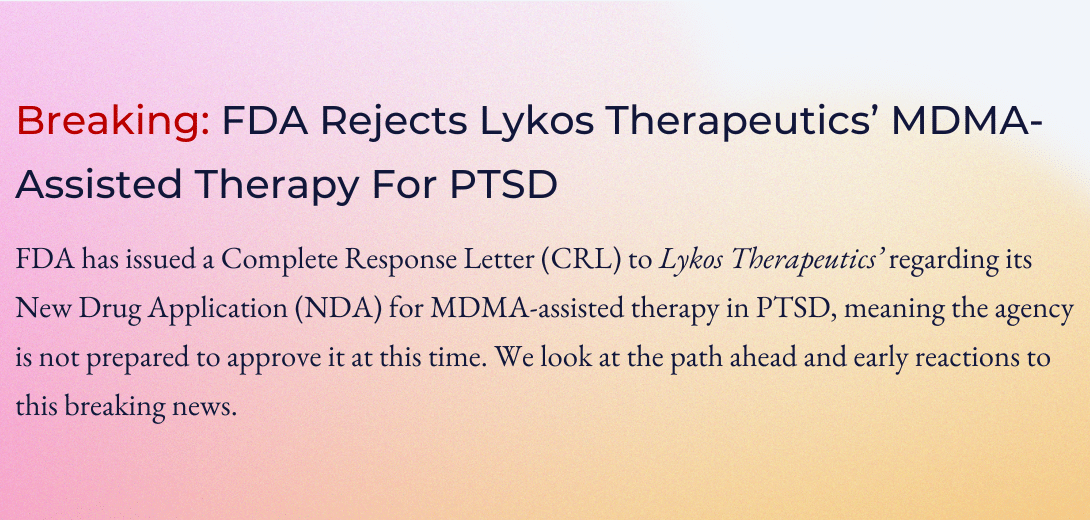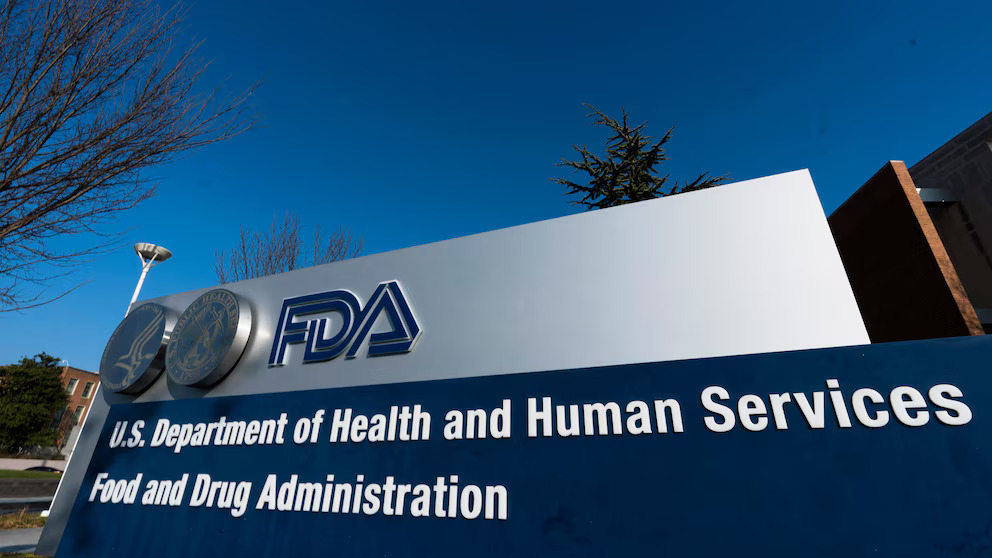The U.S. Food and Drug Administration (FDA) has denied Lykos Therapeutics’ application to use MDMA, commonly known as ecstasy, as a treatment for post-traumatic stress disorder (PTSD).
The FDA stated that more research is necessary, specifically requesting an additional Phase 3 clinical trial to further assess the drug’s safety and effectiveness. This decision came after an expert panel convened by the FDA in June found insufficient evidence to support the drug’s efficacy.
The decision marks a setback for advocates of MDMA as a novel treatment for PTSD, who had hoped for a breakthrough in addressing the disorder.
Lykos Therapeutics’ CEO, Amy Emerson, expressed disappointment, particularly for the millions of Americans with PTSD who have seen few new treatment options over the past two decades.

PTSD is a serious mental health condition affecting around five percent of Americans annually, typically triggered by traumatic events like combat or sexual assault.
Current pharmaceutical treatments for PTSD are limited to two antidepressants that take three months to become effective, with variable results among patients.
MDMA, classified as a Schedule 1 drug under the Controlled Substances Act, would have been a significant departure from traditional treatments if approved for medical use. Lykos Therapeutics’ application was based on two clinical studies involving around 100 participants each, which suggested MDMA, combined with psychological interventions like talk therapy, was both safe and effective.
However, the FDA’s expert panel largely disagreed with these findings, with nine out of 11 experts concluding that the existing data did not sufficiently prove MDMA’s effectiveness in treating PTSD.
Additionally, 10 out of 11 experts felt that the potential benefits did not outweigh the risks. The FDA also raised concerns about the methodology of Lykos’s clinical trials and criticized the company for inadequate data on side effects.
In response to the FDA’s decision, Lykos Therapeutics has committed to addressing the agency’s concerns and exploring all available regulatory pathways to move forward with the approval process. The company aims to find a way to continue the development of MDMA as a potential treatment for PTSD, despite the current setback.
